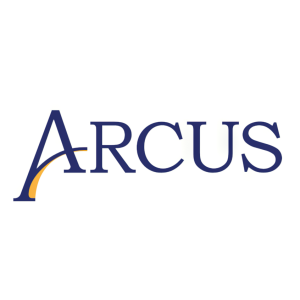Arcus Biosciences Reports Fourth-Quarter and Full-Year 2023 Financial Results and Provides a Pipeline Update
-
Arcus and Gilead announced an additional equity investment of
$320 million - Pharmacokinetic (PK), pharmacodynamic (PD), safety and early efficacy data, including initial observations from the expansion cohort, from ARC-20, support potential for casdatifan (AB521) to result in greater HIF-2a inhibition than the marketed competitor; expansion cohort data expected to be presented in the second half of 2024
- Multiple datasets expected to be presented in the first half of 2024 including EDGE-Gastric for domvanalimab + zimberelimab + chemotherapy at ASCO and two randomized datasets for etrumadenant
-
$1.2 billion - Conference call today at 2:00 PM PT / 5:00 PM ET
“By the beginning of next year, we expect to have six ongoing Phase 3 trials for three distinct programs: domvanalimab plus zimberelimab, our Fc-silent anti-TIGIT antibody and anti-PD-1 antibody combination; casdatifan (AB521), our HIF-2a inhibitor; and quemliclustat, our CD73 inhibitor. Two of our Phase 3 trials (STAR-121 and STAR-221) for domvanalimab plus zimberelimab are expected to complete enrollment this year, and we are beginning preparations for regulatory filings,” said Terry Rosen, Ph.D., chief executive officer of Arcus. “We now have cash runway into 2027, enabling us to accelerate our multiple late-clinical stage studies and support our highly productive discovery engine.”
Corporate Update:
-
In January 2024, Gilead and Arcus announced an amendment to their collaboration agreement and a separate equity investment, raising Gilead’s ownership stake to
33% . In connection with the announcement, Gilead’s Chief Commercial Officer, Johanna Mercier, joined Arcus’s board. - In December 2023, Arcus and Exelixis announced a clinical trial collaboration for STELLAR-009, a Phase 1b/2 trial evaluating casdatifan in combination with zanzalintinib in patients with advanced solid tumors, including clear cell renal cell carcinoma (ccRCC). The trial is currently enrolling.
Pipeline Highlights:
Domvanalimab (Fc-silent anti-TIGIT monoclonal antibody) plus Zimberelimab (anti-PD-1 antibody)
Domvanalimab-zimberelimab Updates:
-
Arcus and Gilead announced strategic changes and enrollment updates to their domvanalimab + zimberelimab clinical program to focus on settings with the highest unmet medical need and where the Fc-silent design of domvanalimab has the potential for differentiation in both efficacy and safety.
- Enrollment was discontinued for the Phase 3 study ARC-10 evaluating domvanalimab plus zimberelimab compared to pembrolizumab in first-line PD-L1-high NSCLC. This enables a potential acceleration of the Phase 3 study STAR-121 in the all-comer first-line NSCLC setting.
- Arcus and Gilead plan to initiate STAR-131, a registrational Phase 3 study in perioperative NSCLC.
- The companies also plan to initiate a Phase 2 trial to evaluate domvanalimab plus zimberelimab in a new disease setting.
Upcoming Domvanalimab-Zimberelimab Milestones:
- Updated PFS and ORR data from the Phase 2 EDGE-Gastric trial evaluating domvanalimab + zimberelimab + chemotherapy in first-line upper GI cancers are expected to be presented at the ASCO Annual Meeting in June 2024. This study is evaluating a similar regimen and patient population as our STAR-221 phase 3 study.
- Data and insights from previously enrolled patients in the ARC-10 study (Part 1) are expected to be shared at future scientific conferences.
- The Phase 3 studies STAR-221 and STAR-121 are expected to complete enrollment by year-end.
Casdatifan, also known as AB521 (HIF-2a inhibitor)
Casdatifan (AB521) Updates:
-
Arcus shared PK, PD, safety, and early efficacy data from the dose-escalation phase of ARC-20, a Phase 1/1b study of casdatifan in cancer patients.
-
PK, PD, and Safety Data:
- PD data demonstrated that a 20 mg daily dose of casdatifan (one-fifth the selected Phase 3 dose of 100 mg) achieved a similar level of HIF-2a-mediated EPO suppression as the 120 mg approved dose of the marketed competitor, belzutifan.
- Dose-proportional PK were observed through the selected Phase 3 dose of 100 mg of casdatifan. By contrast, plasma levels of belzutifan do not meaningfully increase above the approved dose of 120 mg.
- Together, the PK and PD profile observed suggests that the selected dose of 100mg of casdatifan has the potential to achieve substantially greater HIF-2a inhibition than the approved dose of belzutifan.
- No dose-limiting toxicities have been observed to date in ARC-20.
- To date, rates of adverse events, including anemia and hypoxia, appear consistent with observations from historical trials of belzutifan.
- Early efficacy data from the dose-escalation and 100 mg dose-expansion cohorts will be discussed on today’s conference call.
-
PK, PD, and Safety Data:
- Arcus intends to initiate a Phase 3 combination study in ccRCC in early 2025.
Upcoming Casdatifan (AB521) Milestones:
-
Efficacy data from the dose-expansion stage of the ARC-20 study are expected to be presented at a medical conference in the second half of 2024.
- The data will focus on the cohort of 30 patients treated with a 100 mg daily dose of casdatifan.
- In addition, a 50 mg daily expansion cohort is currently enrolling and a to-be-determined higher dose expansion cohort is planned; data from these cohorts will be shared at a later date.
Quemliclustat (small-molecule CD73 inhibitor)
-
Arcus presented overall survival data at the 2024 ASCO GI conference from the ongoing Phase 1/1b ARC-8 trial evaluating quemliclustat plus chemotherapy with or without zimberelimab in patients with previously untreated metastatic pancreatic ductal adenocarcinoma (mPDAC).
- Median Overall Survival (mOS) was 15.7 months for all patients treated with 100 mg quemliclustat-based regimens (pooled analysis) in the ARC-8 study, which exceeds the historical benchmark data for chemotherapy alone.
-
A
37% reduction in risk of death and a 5.9-month improvement in mOS was observed for patients treated with quemliclustat-based regimens when compared to a Synthetic Control Arm of 1:1 matched patients who were treated with gemcitabine/nab-paclitaxel in Phase 2 and 3 clinical studies in a post hoc analysis.
- Initiation of a Phase 3 trial in pancreatic cancer is expected to begin by early 2025.
Etrumadenant (A2a/A2b adenosine receptor antagonist)
- Data from ARC-9, a randomized Phase 1b/2 study evaluating etrumadenant plus zimberelimab plus chemotherapy versus regorafenib in third-line metastatic colorectal cancer (mCRC) are expected to be presented in the first half of 2024.
- Data from MORPHEUS-PDAC, a randomized Phase 2 platform study operationalized by Roche evaluating etrumadenant plus atezolizumab plus chemotherapy versus chemotherapy in first-line metastatic pancreatic ductal adenocarcinoma, are expected to be presented in the first half of 2024.
Early Clinical and Preclinical Programs
- Arcus initiated ARC-27, a Phase 1 study of AB801, Arcus’s potent and highly selective AXL inhibitor, in advanced cancer patients and expects to initiate the first expansion cohort in NSCLC in 2025.
- Arcus is conducting preclinical toxicity studies on multiple development candidates against KIT, a target involved in multiple allergic and immune-mediated diseases.
Financial Results for Fourth Quarter and Full Year 2023:
-
Cash, Cash Equivalents and Marketable Securities were
$866 million $1.1 billion $49 million $33 million $320 million $1.2 billion $870 $920 million -
Revenues were
$31 million $34 million $22 million $9 million $117 million $112 million -
Research and Development (R&D) Expenses were
$93 million $80 million $13 million $9 million $340 million $288 million $42 million $49 million $162 million $161 million -
General and Administrative (G&A) Expenses were
$29 million $28 million $9 million $8 million $117 million $104 million -
Net Loss was
$81 million $67 million $1 million $307 million $267 million
Conference Call Information:
Arcus will host a conference call and webcast today, February 21, at 2:00 PM PT / 5:00 PM ET to discuss its fourth-quarter and full-year 2023 financial results and pipeline updates. To access the call, please dial (404) 975-4839 (local) or (833) 470-1428 (toll-free), using Access Code: 235272. To access the live webcast and accompanying slide presentation, please visit the “Investors & Media” section of the Arcus Biosciences website at www.arcusbio.com. A replay of the webcast will be available following the live event.
Arcus Ongoing and Announced Clinical Studies:
Trial Name |
Arms |
Setting |
Status |
NCT No. |
Lung Cancer |
||||
PACIFIC-8
|
dom + durva vs. durva |
Unresectable Stage 3 NSCLC |
Ongoing Registrational Phase 3 |
|
STAR-121
|
dom + zim + chemo vs. pembro + chemo |
1L NSCLC (PD-L1 all-comers) |
Ongoing Registrational Phase 3 |
|
STAR-131 |
dom + zim + chemo; dom + zim |
Perioperative NSCLC |
Planned Registrational Phase 3 |
TBD |
EDGE-Lung |
dom +/- zim +/- quemli +/- chemo |
1L/2L NSCLC (lung cancer platform study) |
Ongoing Randomized Phase 2 |
|
VELOCITY-Lung
|
dom +/- zim +/- etruma +/- sacituzumab govitecan-hziy or other combos |
1L/2L NSCLC (lung cancer platform study) |
Ongoing Randomized Phase 2 |
|
Gastrointestinal Cancers |
||||
ARC-9 |
etruma + zim + mFOLFOX vs. SOC |
2L/3L/3L+ CRC |
Ongoing Randomized Phase 2 |
|
EDGE-Gastric (ARC-21) |
dom +/- zim +/- quemli +/- chemo |
1L/2L Upper GI Malignancies |
Ongoing Randomized Phase 2 |
|
STAR-221 |
dom + zim + chemo vs. nivo + chemo |
1L Gastric, Gastroesophageal Junction (GEJ) and Esophageal Adenocarcinoma (EAC) |
Ongoing Registrational Phase 3 |
|
Pancreatic Cancer |
||||
ARC-8 |
quemli + zim + gem/nab-pac vs. quemli + gem/nab-pac |
1L, 2L PDAC |
Ongoing Randomized Phase 1/1b |
|
Prostate Cancer |
||||
ARC-6 |
etruma + zim + SOC vs. SOC |
2L/3L CRPC |
Ongoing Randomized Phase 2 |
|
Kidney Cancer |
||||
ARC-20 |
cas |
Cancer Patients / ccRCC |
Ongoing Phase 1/1b |
|
STELLAR-009 |
cas + zanza |
ccRCC |
Ongoing Phase 1b/2 |
|
Other |
||||
ARC-25 |
AB598 |
Advanced Malignancies |
Ongoing |
|
ARC-26 |
AB801 |
Healthy Volunteers |
Ongoing |
|
ARC-27 |
AB801 |
Advanced Malignancies |
Ongoing |
|
cas: casdatifan; dom: domvanalimab; durva: durvalumab; etruma: etrumadenant; gem/nab-pac: gemcitabine/nab-paclitaxel; nivo: nivolumab; pembro: pembrolizumab; quemli: quemliclustat; SOC: standard of care; zanza: zanzalintinib; zim: zimberelimab; ccRCC: clear-cell renal cell carcinoma; CRC: colorectal cancer; CRPC: castrate-resistant prostate cancer; GI: gastrointestinal; NSCLC: non-small cell lung cancer; PDAC: pancreatic ductal adenocarcinoma
About the Gilead Collaboration
In May 2020, Arcus established a 10-year collaboration with Gilead to strategically advance our portfolio. Under this collaboration, Gilead obtained time-limited exclusive option rights to all of our clinical programs arising during the collaboration term. Arcus and Gilead are co-developing four investigational products, including zimberelimab (Arcus’s anti-PD-1 molecule), domvanalimab (Arcus’s anti-TIGIT antibody), etrumadenant (Arcus’s adenosine receptor antagonist) and quemliclustat (Arcus’s CD73 inhibitor). The collaboration was expanded in November 2021 to include research directed to two targets for oncology, which research collaboration was further expanded in May 2023 to add up to four targets for inflammatory diseases.
About Arcus Biosciences
Arcus Biosciences is a clinical-stage, global biopharmaceutical company developing differentiated molecules and combination medicines for people with cancer. In partnership with industry partners, patients and physicians around the world, Arcus is expediting the development of first- or best-in-class medicines against well-characterized biological targets and pathways and studying novel, biology-driven combinations that have the potential to help people with cancer live longer. Founded in 2015, the company has expedited the development of multiple investigational medicines into clinical studies, including new combination approaches that target TIGIT, PD-1, the adenosine axis (CD73, dual A2a/A2b receptor and CD39), AXL and HIF-2a. For more information about Arcus Biosciences’ clinical and pre-clinical programs, please visit www.arcusbio.com or follow us on Twitter.
Domvanalimab, etrumadenant, quemliclustat, and zimberelimab are investigational molecules, and neither Gilead nor Arcus has received approval from any regulatory authority for any use globally, and their safety and efficacy have not been established. Casdatifan, AB598 and AB801 are also investigational molecules, and Arcus has not received approval from any regulatory authority for any use globally, and their safety and efficacy have not been established.
Forward-Looking Statements
This press release contains forward-looking statements. All statements regarding events or results to occur in the future contained herein are forward-looking statements reflecting the current beliefs and expectations of management made pursuant to the safe harbor provisions of the Private Securities Litigation Reform Act of 1995, including, but not limited to, the statements in Dr. Rosen’s quote and statements regarding: Arcus’s expectation that its cash, cash equivalents and marketable securities on-hand are sufficient to fund operations into 2027 and support Phase 3 trials for 3 different molecules and launch preparations; the timing and scope of analyses, data disclosures and presentations; whether data and results from current studies support further development of a program; expected timing of clinical milestones, including the completion of enrollment; our ability to accelerate the development of our clinical pipeline; the potential of casdatifan to achieve substantially greater HIF-2a inhibition than the approved dose of the marketed competitor; the potency, efficacy or safety of Arcus’s investigational products; and the initiation of and associated timing for future studies, including STAR-131 and the Phase 3 studies in ccRCC and pancreatic cancer. All forward-looking statements involve known and unknown risks and uncertainties and other important factors that may cause Arcus’s actual results, performance or achievements to differ significantly from those expressed or implied by the forward-looking statements. Factors that could cause or contribute to such differences include, but are not limited to: risks associated with preliminary and interim data not being guarantees that future data will be similar; the unexpected emergence of adverse events or other undesirable side effects; difficulties or delays in initiating or conducting clinical trials due to difficulties or delays in the regulatory process, enrolling subjects or manufacturing or supplying product for such clinical trials; Arcus’s dependence on the collaboration with Gilead for the successful development and commercialization of its optioned molecules; difficulties associated with the management of the collaboration activities or expanded clinical programs; changes in the competitive landscape for Arcus’s programs; and the inherent uncertainty associated with pharmaceutical product development and clinical trials. Risks and uncertainties facing Arcus are described more fully in the “Risk Factors” section of Arcus’s most recent periodic report filed with the
The Arcus name and logo are trademarks of Arcus Biosciences, Inc. All other trademarks belong to their respective owners.
ARCUS BIOSCIENCES, INC. |
|||||||||||||||
Consolidated Statements of Operations |
|||||||||||||||
(unaudited) |
|||||||||||||||
(In millions, except per share amounts) |
|||||||||||||||
|
Three Months Ended
|
|
Years Ended
|
||||||||||||
|
|
2023 |
|
|
|
2022 |
|
|
|
2023 |
|
|
|
2022 |
|
Revenues: |
|
|
|
|
|
|
|
||||||||
License and development service revenue |
$ |
22 |
|
|
$ |
26 |
|
|
$ |
80 |
|
|
$ |
74 |
|
Other collaboration revenue |
|
9 |
|
|
|
8 |
|
|
|
37 |
|
|
|
38 |
|
Total revenues |
|
31 |
|
|
|
34 |
|
|
|
117 |
|
|
|
112 |
|
|
|
|
|
|
|
|
|
||||||||
Operating expenses: |
|
|
|
|
|
|
|
||||||||
Research and development |
|
93 |
|
|
|
80 |
|
|
|
340 |
|
|
|
288 |
|
General and administrative |
|
29 |
|
|
|
28 |
|
|
|
117 |
|
|
|
104 |
|
Total operating expenses |
|
122 |
|
|
|
108 |
|
|
|
457 |
|
|
|
392 |
|
|
|
|
|
|
|
|
|
||||||||
Loss from operations |
|
(91 |
) |
|
|
(74 |
) |
|
|
(340 |
) |
|
|
(280 |
) |
|
|
|
|
|
|
|
|
||||||||
Non-operating income (expense): |
|
|
|
|
|
|
|
||||||||
Interest and other income, net |
|
11 |
|
|
|
8 |
|
|
|
41 |
|
|
|
16 |
|
Effective interest on liability for sale of future royalties |
|
— |
|
|
|
(1 |
) |
|
|
(2 |
) |
|
|
(2 |
) |
Total non-operating income, net |
|
11 |
|
|
|
7 |
|
|
|
39 |
|
|
|
14 |
|
|
|
|
|
|
|
|
|
||||||||
Net loss before income taxes |
|
(80 |
) |
|
|
(67 |
) |
|
|
(301 |
) |
|
|
(266 |
) |
|
|
|
|
|
|
|
|
||||||||
Income tax expense |
|
(1 |
) |
|
|
— |
|
|
|
(6 |
) |
|
|
(1 |
) |
|
|
|
|
|
|
|
|
||||||||
Net loss |
$ |
(81 |
) |
|
$ |
(67 |
) |
|
$ |
(307 |
) |
|
$ |
(267 |
) |
|
|
|
|
|
|
|
|
||||||||
Net loss per share: |
|
|
|
|
|
|
|
||||||||
Basic and diluted |
$ |
(1.08 |
) |
|
$ |
(0.93 |
) |
|
$ |
(4.15 |
) |
|
$ |
(3.71 |
) |
|
|
|
|
|
|
|
|
||||||||
Shares used to compute net loss per share: |
|
|
|
|
|
|
|
||||||||
Basic and diluted |
|
75.0 |
|
|
|
72.6 |
|
|
|
74.0 |
|
|
|
72.0 |
|
Selected Consolidated Balance Sheet Data |
|||||
(unaudited) |
|||||
(In millions) |
|||||
|
December 31,
|
|
December 31,
|
||
Cash, cash equivalents and marketable securities |
$ |
866 |
|
$ |
1,138 |
Total assets |
|
1,095 |
|
|
1,345 |
Total liabilities |
|
633 |
|
|
688 |
Total stockholders’ equity |
|
462 |
|
|
657 |
Derived from the audited financial statements included in the Company's Annual Report on Form 10-K filed with the Securities and Exchange Commission on February 21, 2024. |
|||||
View source version on businesswire.com: https://www.businesswire.com/news/home/20240221004993/en/
Investor Inquiries:
Pia Eaves
Head of Investor Relations & Strategy
(617) 459-2006
peaves@arcusbio.com
Media Inquiries:
Holli Kolkey
VP of Corporate Communications
(650) 922-1269
hkolkey@arcusbio.com
Source: Arcus Biosciences









